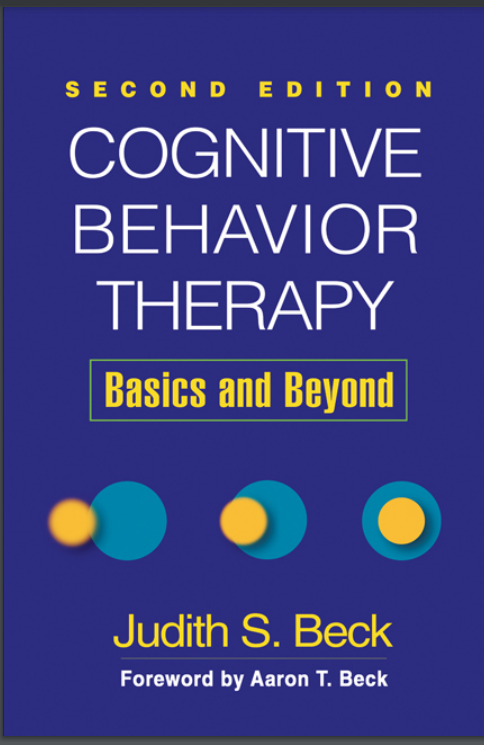

Cognitive Behavior Therapy: Basics and Beyond by Judith S. Beck is one of the most influential and widely used guides for learning and practicing Cognitive Behavioral Therapy (CBT). Written in a clear, structured, and practical style, this book serves both as a teaching manual for therapists and as a foundational text for students and professionals in mental health. It expands upon the original work of Aaron T. Beck, Judith Beck’s father, who pioneered CBT, and provides step-by-step strategies to apply CBT effectively in clinical practice.
The book begins by introducing the core principles of CBT—that thoughts, feelings, and behaviors are interconnected, and that identifying and restructuring maladaptive thoughts can lead to improved emotional and behavioral outcomes. Beck explains how dysfunctional thinking patterns such as overgeneralization, catastrophizing, and black-and-white thinking fuel psychological distress, and how CBT helps clients recognize and challenge these distortions.
Practical application is a central theme. The book guides readers on how to conduct CBT sessions from start to finish: setting an agenda, identifying automatic thoughts, uncovering core beliefs, and developing homework assignments to reinforce learning. Beck emphasizes the importance of the collaborative relationship between therapist and client, highlighting empathy, structure, and guided discovery as essential elements of the therapeutic process.
In addition, the book addresses how to tailor CBT for specific conditions such as depression, anxiety disorders, personality disorders, and more complex clinical presentations. It provides case examples, dialogues, worksheets, and therapeutic techniques to make the concepts applicable in real-world scenarios.
Ultimately, Beck’s work emphasizes that CBT is not just about symptom relief but about empowering clients with tools to think more realistically, cope more effectively, and develop resilience for long-term well-being.























.jpeg)



.jpg)
.jpg)
















.jpeg)

.jpg)
.jpg)
.jpg)

.jpg)





.jpg)

.jpeg)

.jpg)







.png)






.jpeg)





.jpeg)









